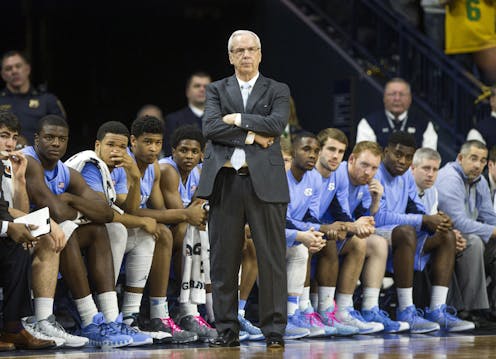In scandal after scandal, NCAA takes fall for complicit colleges
- Written by Rick Eckstein, Professor of Sociology, Villanova University
 North Carolina head coach Roy Williams looks on during the first half of an NCAA college basketball game agaist Notre Dame.AP Photo/Robert Franklin
North Carolina head coach Roy Williams looks on during the first half of an NCAA college basketball game agaist Notre Dame.AP Photo/Robert FranklinCollege sports fans probably weren’t surprised to learn that the University of North Carolina (UNC) had been engaged in academic fraud for decades. In this particular instance, students,...
Read more: In scandal after scandal, NCAA takes fall for complicit colleges

